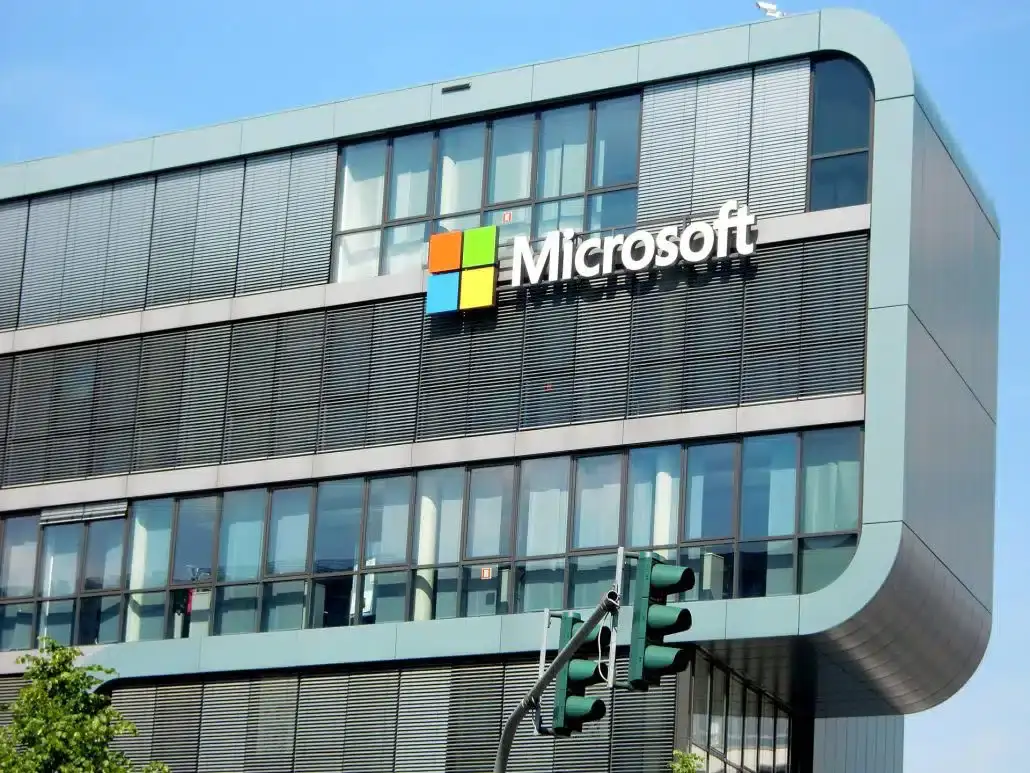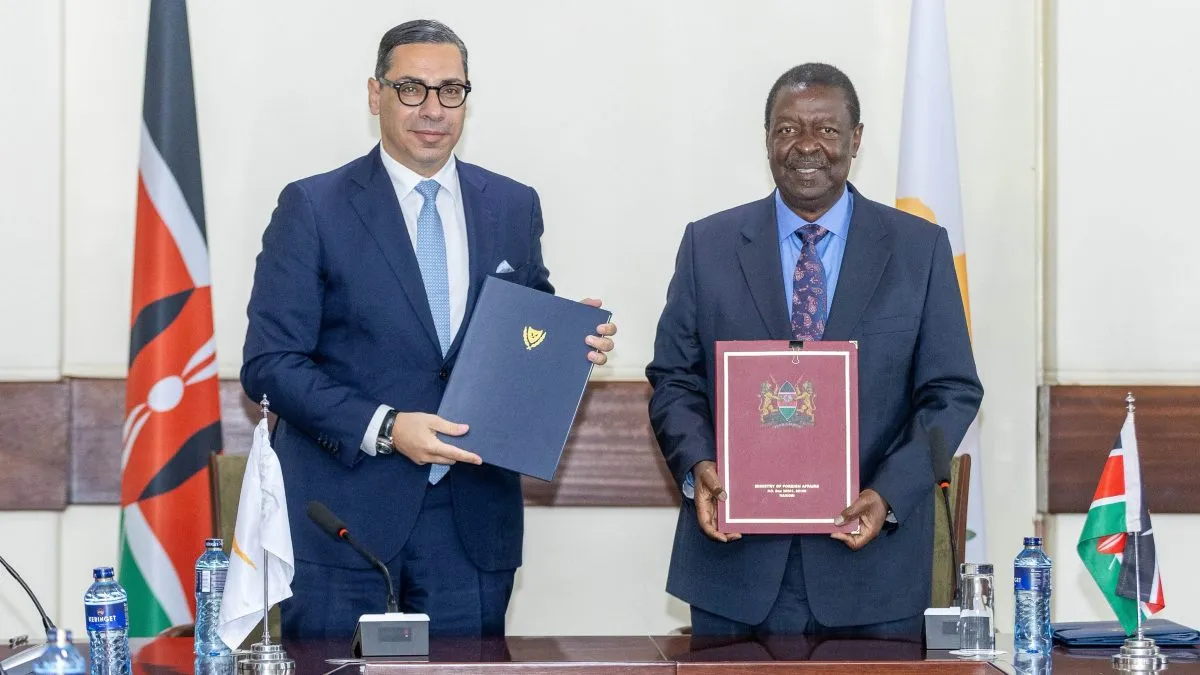In a bold move to fortify Africa’s digital future, Microsoft has announced a $1 million investment to train one million Nigerians in artificial intelligence (AI) and digital skills over the next two years. Unveiled at a high-profile event in Lagos on February 19, 2025, this initiative underscores Microsoft’s commitment to empowering Africa’s burgeoning workforce and positioning the continent at the forefront of the global AI revolution.
The programme, a collaboration with local partners Tech4Dev and Data Science Nigeria, aims to bolster employability among Nigerian youth by providing cutting-edge training in AI, cybersecurity, and other digital competencies. This initiative comes on the heels of Microsoft’s extensive investments across the region, including a $1 billion digital infrastructure commitment in Kenya and a pledge to train one million South Africans in AI and cybersecurity skills by 2026.
A Strategic Investment in Human Capital
Empowering Nigeria’s Youth for the Digital Age
Nigeria, Africa’s most populous nation with over 200 million people and a predominantly youthful demographic, has long been recognized as a hotbed for innovation and entrepreneurial talent. Despite its vast potential, the country continues to grapple with significant challenges, including high youth unemployment and an underdeveloped digital infrastructure. Microsoft’s $1 million investment is a strategic effort to address these challenges head-on by equipping young Nigerians with the skills needed to thrive in an increasingly AI-driven global economy.
Olatomiwa Williams, Managing Director of Microsoft Nigeria and Ghana, emphasized at the Lagos event that the initiative is designed not only to bridge the digital divide but also to empower individuals and organizations with the tools to harness new economic opportunities. By focusing on AI and digital skills, Microsoft aims to create a ripple effect that could transform Nigeria’s technology ecosystem, driving growth across sectors such as agriculture, healthcare, finance, and manufacturing.
Leveraging Digital Platforms for Scalable Impact
A key aspect of the training programme is its reliance on digital learning platforms, which are expected to minimize the cost per trainee while maximizing outreach. By harnessing online courses, virtual workshops, and interactive bootcamps, the initiative is designed to be both scalable and cost-effective. This approach has raised some eyebrows, as critics question how $1 per trainee can deliver a comprehensive curriculum. However, industry experts suggest that leveraging existing digital infrastructure and partnering with established training organizations like Tech4Dev and Data Science Nigeria could enable a highly efficient, technology-driven training model.
Expanding Microsoft’s Footprint in Africa
A Continuum of Investment Across the Continent
This latest initiative is part of Microsoft’s broader strategy to deepen its engagement in Africa—a region that offers vast untapped potential for digital transformation. In May 2024, Microsoft, in collaboration with technology firm G42, announced a landmark $1 billion investment in Kenya. This investment aimed to enhance Kenya’s digital infrastructure through projects such as a geothermal-powered data centre and an innovation hub designed to nurture local tech startups. Similarly, Microsoft has committed to training one million South Africans in AI and cybersecurity by 2026, signaling its intent to build a comprehensive digital ecosystem across the continent.
These investments are not merely philanthropic gestures but strategic moves to secure a robust user base for Microsoft’s technologies and services in the long term. By fostering local talent and nurturing innovation, Microsoft hopes to create a dynamic market where its products can flourish and where Africa can emerge as a competitive player in the global digital economy.
Strengthening Partnerships and Local Ecosystems
Central to Microsoft’s African strategy is its partnership with organizations that have deep roots in the local tech community. Data Science Nigeria, a nonprofit organization dedicated to promoting AI and data science, has been at the forefront of grassroots technology education in the country. Tech4Dev, another key partner, plays a vital role in bridging the gap between technology and development by offering practical training and mentorship to aspiring digital professionals.
These partnerships ensure that Microsoft’s investment is not an isolated effort but part of a larger, integrated strategy to build sustainable digital ecosystems. By working closely with local stakeholders, including government agencies, academic institutions, and private sector innovators, Microsoft is helping to create a nurturing environment for tech innovation that could yield long-term economic benefits.
The Nigerian Digital Revolution: Context and Implications
Nigeria’s Burgeoning Tech Ecosystem
Over the past decade, Nigeria has emerged as one of Africa’s leading technology hubs. Lagos, often dubbed “Africa’s Silicon Lagoon,” is home to a rapidly growing startup ecosystem that has produced success stories such as Paystack, Flutterwave, and Andela. This vibrant tech scene is fueled by a young, dynamic workforce that is eager to embrace digital technologies and disrupt traditional industries.
The Nigerian government has also recognized the transformative potential of digital technology. Initiatives such as the National Digital Economy Policy and Strategy (NDEPS) are designed to create an enabling environment for digital innovation by promoting investment in technology infrastructure, supporting local startups, and fostering public-private partnerships. Microsoft’s AI training programme aligns with these national priorities, offering a timely boost to Nigeria’s ongoing digital revolution.
Addressing the Digital Divide
Despite the rapid growth of Nigeria’s tech sector, a significant digital divide remains. Many Nigerians, particularly in rural areas, still lack access to reliable internet connectivity and modern digital tools. This divide poses a major barrier to inclusive economic development and exacerbates existing socio-economic disparities.
Microsoft’s initiative is aimed at addressing this divide by making high-quality digital education accessible to a wide audience. By offering training in AI and cybersecurity, the programme seeks to democratize access to advanced technological skills, ensuring that individuals from all walks of life can participate in and benefit from the digital economy. Such efforts are crucial for building a more equitable society where opportunities are not limited by geographic or socio-economic constraints.
Economic Implications and the Road to an AI-Driven Future
Harnessing AI for Economic Growth
The economic potential of AI is immense, and studies have suggested that AI could contribute significantly to Africa’s GDP by 2050. Microsoft’s President for Africa, Lillian Barnard, has highlighted that investments in AI and digital skills can act as a catalyst for economic transformation. By fostering a skilled workforce capable of leveraging AI technologies, Nigeria—and Africa more broadly—can unlock new avenues for economic growth, innovation, and competitiveness.
AI is already revolutionizing industries worldwide by enhancing efficiency, reducing operational costs, and driving innovation. In sectors such as agriculture, AI-powered tools can optimize crop yields, predict weather patterns, and improve supply chain management. In healthcare, AI applications are being used to diagnose diseases, manage patient data, and streamline clinical workflows. For Nigeria, which has a diverse economy spanning agriculture, oil and gas, manufacturing, and services, the adoption of AI could lead to transformative improvements in productivity and economic resilience.
Digital Skills as a Foundation for Future Competitiveness
The global economy is increasingly defined by digital innovation, and the skills required to compete in this new landscape are evolving rapidly. For many emerging economies, the challenge lies in preparing a workforce that is not only literate in basic digital skills but also proficient in advanced technologies like AI, cybersecurity, and data analytics. Microsoft’s training initiative is a strategic response to this challenge, aiming to equip one million Nigerians with the skills necessary to thrive in a digital economy.
The programme is expected to cover a wide range of topics—from introductory courses in coding and data science to more specialized training in AI algorithms and cybersecurity protocols. By offering a tiered curriculum that caters to beginners as well as advanced learners, the initiative seeks to create a comprehensive pipeline of talent that can drive innovation across sectors. In doing so, Microsoft hopes to foster a culture of continuous learning and adaptation, which is essential in an era characterized by rapid technological change.
Industry Reactions and Comparative Initiatives
Balancing Ambition with Practicality
While the ambitious goal of training one million Nigerians is laudable, questions have been raised about the feasibility of achieving this target with a $1 million budget—effectively allocating around $1 per trainee. Critics point out that such a budget may seem insufficient to deliver a robust and comprehensive training programme. However, Microsoft and its partners are optimistic that leveraging digital platforms and scalable, technology-driven learning models can help overcome these financial constraints.
Experts suggest that the initiative may rely on a “train-the-trainer” model, where a core group of skilled professionals is first trained intensively and then tasked with educating larger groups of participants. This cascading model can exponentially increase the number of individuals reached while keeping per-head costs low. Additionally, partnerships with government agencies and international development organizations could provide supplementary funding and resources, further enhancing the programme’s impact.
Competition Among Tech Giants
Microsoft’s commitment to digital skills training in Nigeria is part of a broader trend among global tech giants to invest in Africa’s digital future. In October 2024, Google announced a ₦2.8 billion (approximately $1.7 million) grant aimed at supporting AI talent development in Nigeria, as part of a larger $5.8 million commitment to digital skills across Sub-Saharan Africa. Such initiatives underscore the competitive landscape in which tech companies are vying for influence and market share in Africa.
The intensifying rivalry among tech giants is largely driven by the recognition that Africa’s youthful population and rapidly expanding digital market represent a significant growth opportunity. By investing in human capital, companies like Microsoft and Google are not only fostering local innovation but also ensuring that they have a ready pool of skilled professionals who will be future adopters of their technologies. This strategic positioning is critical in a market where the next wave of technological innovation could be led by local startups and entrepreneurs.
Policy Environment and Regulatory Considerations
Navigating Nigeria’s Regulatory Landscape
The success of Microsoft’s AI training initiative will depend in part on the regulatory environment in Nigeria. The Nigerian government has been proactive in implementing policies aimed at fostering a vibrant digital economy. However, challenges remain, particularly in terms of regulatory consistency and infrastructure development. The government’s National Digital Economy Policy and Strategy (NDEPS) is one such framework designed to address these challenges by promoting digital literacy, expanding internet connectivity, and encouraging private sector investment in technology.
Microsoft’s initiative is expected to align with these policy objectives, reinforcing the government’s efforts to create a supportive ecosystem for digital innovation. By collaborating with local educational institutions, government agencies, and industry bodies, Microsoft and its partners can help streamline regulatory processes and address infrastructural gaps that have historically hindered digital growth in Nigeria.
The Debate Over AI Regulation
Alongside efforts to boost digital skills, Africa is witnessing intense debates over the regulation of AI technologies. Recent controversies, such as Kenya’s proposed AI bill—which reportedly includes provisions for a two-year jail term for unlicensed businesses operating in the AI space—highlight the delicate balance between fostering innovation and ensuring ethical, responsible technology deployment. Although the Nigerian initiative by Microsoft does not directly address regulatory enforcement, it comes at a time when discussions about AI governance are gaining momentum across the continent.
Experts argue that robust regulatory frameworks are essential to safeguard consumer interests, protect data privacy, and prevent misuse of AI. By contributing to a broader dialogue on technology policy, initiatives like Microsoft’s training programme can indirectly influence regulatory standards and promote an environment where innovation is encouraged within clearly defined ethical boundaries.
Future Outlook: Building a Sustainable Digital Ecosystem
Long-Term Impact on the Nigerian Economy
If successfully implemented, Microsoft’s $1 million AI training initiative could have far-reaching implications for Nigeria’s economy. By creating a large, digitally literate workforce, the programme has the potential to boost productivity, attract further investment in the tech sector, and drive innovation in both established and emerging industries. With Nigeria’s economy already characterized by rapid urbanization and a growing middle class, the infusion of advanced digital skills could help catalyze a new era of economic growth and competitiveness.
Moreover, the benefits of the initiative are likely to extend beyond immediate job creation. A workforce that is well-versed in AI and cybersecurity can spur the development of local startups, foster entrepreneurship, and enhance the country’s overall resilience to technological disruptions. As Nigerian businesses increasingly adopt digital tools and platforms, the multiplier effects of a digitally skilled workforce could transform traditional sectors—from agriculture to manufacturing—into more efficient, tech-enabled industries.
Fostering Regional and Continental Collaboration
Microsoft’s investment in Nigeria is also expected to have ripple effects across the African continent. As one of the flagship digital skills initiatives in the region, it may serve as a model for similar programmes in other countries. The lessons learned from Nigeria’s experience could inform broader strategies for upskilling Africa’s workforce, promoting intra-African collaboration, and building a continent-wide digital ecosystem.
Regional partnerships, such as those fostered by the African Union and various sub-regional bodies, could leverage the momentum generated by such initiatives to create standardized curricula, share best practices, and ensure that digital skills training is accessible to all. This collective approach is vital for addressing the systemic challenges that have long impeded Africa’s digital transformation, from infrastructural deficits to regulatory fragmentation.
The Role of Corporate Social Responsibility
Microsoft’s commitment to digital skills training in Nigeria is also a significant example of corporate social responsibility (CSR) in action. In an era where businesses are increasingly expected to contribute positively to society, investments in education and human capital development are seen as critical components of sustainable growth. By channeling resources into programmes that empower individuals and communities, Microsoft is not only enhancing its brand reputation but also laying the groundwork for a future market that is both innovative and inclusive.
This CSR approach is particularly important in emerging markets like Nigeria, where the digital divide can exacerbate existing inequalities. By investing in education and skills development, Microsoft is helping to create a more level playing field—one where access to technology and knowledge is not determined solely by socio-economic status. Such initiatives can lead to long-term societal benefits, including improved governance, enhanced public services, and a more engaged citizenry.
Conclusion: A New Chapter for Africa’s Digital Future
Microsoft’s $1 million investment to train one million Nigerians in AI and digital skills represents a watershed moment for Africa’s digital transformation. As the continent grapples with the challenges of youth unemployment, infrastructural deficits, and a rapidly evolving technological landscape, initiatives like this provide a beacon of hope and a roadmap for sustainable development.
By focusing on human capital development and leveraging digital platforms, Microsoft is setting the stage for a future where Africa’s youth are not just passive consumers of technology, but active creators and innovators. The initiative’s success will hinge on effective collaboration with local partners, strategic alignment with government policies, and the ability to scale training programmes to meet the diverse needs of Nigeria’s population.
While debates continue about the feasibility of reaching one million trainees with a $1 million budget, the initiative’s broader strategic goals—empowering the workforce, bridging the digital divide, and fostering a culture of innovation—are unequivocal. In an increasingly competitive global market, the ability to harness the power of AI and digital technology will determine which economies thrive and which fall behind. Nigeria’s journey, bolstered by Microsoft’s commitment, could well serve as a blueprint for digital transformation across the continent.
As Microsoft deepens its engagement in Africa, its investments in digital skills training are poised to create lasting change—not only for Nigeria but for the entire region. With strong governmental support, robust partnerships, and a clear vision for the future, Africa is on course to emerge as a dynamic player in the global digital economy.
In the coming years, the world will be watching how initiatives like Microsoft’s transform the economic and social landscape of Nigeria. The convergence of advanced technology, strategic investment, and local talent could redefine Africa’s role in the global market, making it a hub of innovation, competitiveness, and sustainable growth. As the digital revolution gathers pace, one thing is clear: Africa’s future is bright, and its leaders are determined to seize the opportunities of the AI era.
Ultimately, Microsoft’s $1 million AI training initiative is more than just a financial commitment—it is a declaration of faith in Africa’s potential. It represents the belief that by investing in people, technology, and education, transformative change is possible. For Nigeria’s youth, this initiative offers a pathway to prosperity and a chance to be part of a digital renaissance that will shape the continent’s destiny for decades to come.
With digital skills at the core of economic progress, the initiative could serve as a catalyst for broader societal change, driving not only technological advancement but also economic inclusion, social mobility, and improved quality of life. As Nigeria embarks on this ambitious journey, the world will be watching closely—and the promise of a more innovative, inclusive, and digitally empowered Africa is well within reach.
Ready to take your career to the next level? Join our dynamic courses: ACCA, HESI A2, ATI TEAS 7 , HESI EXIT , NCLEX – RN and NCLEX – PN, Financial Literacy!🌟 Dive into a world of opportunities and empower yourself for success. Explore more at Serrari Ed and start your exciting journey today! ✨
photo source: Google
By: Montel Kamau
Serrari Financial Analyst
20th February, 2025
Article, Financial and News Disclaimer
The Value of a Financial Advisor
While this article offers valuable insights, it is essential to recognize that personal finance can be highly complex and unique to each individual. A financial advisor provides professional expertise and personalized guidance to help you make well-informed decisions tailored to your specific circumstances and goals.
Beyond offering knowledge, a financial advisor serves as a trusted partner to help you stay disciplined, avoid common pitfalls, and remain focused on your long-term objectives. Their perspective and experience can complement your own efforts, enhancing your financial well-being and ensuring a more confident approach to managing your finances.
Disclaimer: This article is for informational purposes only and does not constitute financial advice. Readers are encouraged to consult a licensed financial advisor to obtain guidance specific to their financial situation.
Article and News Disclaimer
The information provided on www.serrarigroup.com is for general informational purposes only. While we strive to keep the information up to date and accurate, we make no representations or warranties of any kind, express or implied, about the completeness, accuracy, reliability, suitability, or availability with respect to the website or the information, products, services, or related graphics contained on the website for any purpose. Any reliance you place on such information is therefore strictly at your own risk.
www.serrarigroup.com is not responsible for any errors or omissions, or for the results obtained from the use of this information. All information on the website is provided on an as-is basis, with no guarantee of completeness, accuracy, timeliness, or of the results obtained from the use of this information, and without warranty of any kind, express or implied, including but not limited to warranties of performance, merchantability, and fitness for a particular purpose.
In no event will www.serrarigroup.com be liable to you or anyone else for any decision made or action taken in reliance on the information provided on the website or for any consequential, special, or similar damages, even if advised of the possibility of such damages.
The articles, news, and information presented on www.serrarigroup.com reflect the opinions of the respective authors and contributors and do not necessarily represent the views of the website or its management. Any views or opinions expressed are solely those of the individual authors and do not represent the website's views or opinions as a whole.
The content on www.serrarigroup.com may include links to external websites, which are provided for convenience and informational purposes only. We have no control over the nature, content, and availability of those sites. The inclusion of any links does not necessarily imply a recommendation or endorsement of the views expressed within them.
Every effort is made to keep the website up and running smoothly. However, www.serrarigroup.com takes no responsibility for, and will not be liable for, the website being temporarily unavailable due to technical issues beyond our control.
Please note that laws, regulations, and information can change rapidly, and we advise you to conduct further research and seek professional advice when necessary.
By using www.serrarigroup.com, you agree to this disclaimer and its terms. If you do not agree with this disclaimer, please do not use the website.
www.serrarigroup.com, reserves the right to update, modify, or remove any part of this disclaimer without prior notice. It is your responsibility to review this disclaimer periodically for changes.
Serrari Group 2025





